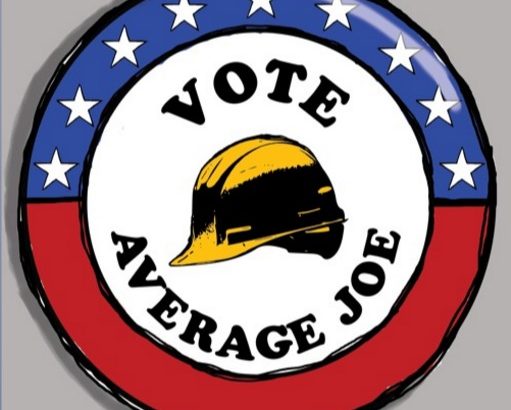“With its insulation stripped away amidst globalization and its dominance disrupted as other countries assert themselves, the United States finds itself neither apart nor atop but rather amidst the world, both shaping and being shaped by global events and forces. As formidable as the policy challenges this poses are, the shock Americans feel to their sense of themselves and their nation is even more fundamental,” writes Sanford School professor Bruce Jentleson.
Read More in War on the RocksAuthor: sh136@duke.edu

Forget a Wall. There’s a Better Way to Secure the Border.
“As Gen. Kelly, who will oversee our borders if confirmed, seems to believe, walling off the entire southern boundary at great cost sends a hostile message that could snuff out the very cooperation needed to make our borders truly secure. Innovative and road-tested alternatives clearly exist. The Trump administration should give them a hard look before laying its first brick,” writes Sanford School professor Stephen Kelly.
Read More in The New York Times
The Disturbing Legal Legacy Obama is Leaving for Trump
Many Americans just don’t seem to mind if the president kills people, even U.S. citizens, as long as they’re told the people being killed are terrorists. “Americans are very pragmatic as to how a president exercises his War Powers,” writes Charles Dunlap, executive director of Duke’s Center on Law, Ethics and National Security. “(T)hey are less concerned about the technical legal basis as they are about success against authentic threats.”
Read More in Vox
Flaws in The New Intelligence Report on Russia
The country’s leading expert on Russian media, Duke professor emeritus Ellen Mickiewicz, asks why theOffice of the Director of National Intelligence takes at face valuethe Russian state media channel RT’s own estimate of its viewership at “550 million people worldwide and 85 million in the US.” That estimate, says Mickiewicz, “is wholly imaginary. It refers to potential audience: Households that can receive a signal—if and only if—they bother to turn it on.”
Read More in The NationGlobal Health Advice for Trump Administration
Nationalism and isolationism that marked the president-elect’s campaign are a concern if they continue, says one faculty member, Gavin Yamey, professor of the practice of global health. “Those of us working in global health will need to pay very close attention to whether the U.S. starts retreating from its impressive record on global health research and development,” Yamey says.
Read More at DGHI
Don’t Change the ‘No-Ransom’ Policy
“Until it can be persuasively demonstrated that the interests of the American people as a whole are served, we shouldn’t be expecting any initiative to cut a deal with terrorists to end well,” writes law professor Charlie Dunlap, in response to a “60 Minutes” story on U.S. policies when Americans are held hostage by terrorists.
Read More in Lawfire
How to Crack Down on Fake News
“Our best option is to tailor laws and design institutions with the goal of containing fakery and fraud, an objective that depends as much on the operation of social norms and shaming techniques as it does on formal penalties and the cultivation of savvier consumers of products, investment pitches and news,” writes history professor Edward Balleisen.

Higher Legislative Pay Just Gets You Richer Lawmakers
The Duke study found states that pay lawmakers more still have legislatures dominated by white-collar professionals. “Reformers argue higher pay … would have the benefit of increasing economic diversity in our political institutions,” said Nicholas Carnes, lead author and assistant professor at the Sanford School of Public Policy. “Our research shows this isn’t true.”

Exhibit A for Republican Obamacare Repeal Challenge: People with HIV
HIV experts in Republican states have already been wrestling with the issue of caring for patients with HIV. Earlier this year, North Carolina became the 48th U.S. state to permit the use of federal grant money via the Ryan White HIV/AIDS program to pay insurance premiums for people with HIV. “We’re late to the party, and now the party may be over,” says Allison Rice, director of the Health Justice Clinic at Duke Law.
Read More in The New York Times

Green Technologies Need to Proliferate 10 Times Faster
The Paris Agreement aims to limit global warming to below 2°C above pre-industrial levels, with an ambition of limiting temperature rises even further to 1.5°C. But the United Nations later said in a report that current greenhouse emissions will exceed that which is needed to keep global warming in check by 2030 unless the pace at which emissions are curbed is not increased. “Based on our calculations, we won’t meet the climate warming goals set by the Paris Agreement unless we speed up the spread of clean technology by a full order of magnitude, or about 10 times faster than in the past,” says Gabriele Manoli, a former postdoctoral associate at the Nicholas School of the Environment, who led the study.
Read More in E&T
Trump’s ‘Historic’ Opportunity to Reshape the Federal Courts
Ernest Young, a Duke University law professor focused on the federal courts, expects Democrat-led states to respond to President Trump’s potential regulatory changes by issuing their own regulations on issues such as climate change and immigration. If that happens, Young predicts the lower federal courts will see cases involving conflicts between federal and state law.
Read More in the Daily Signal

NC Governor Pledges to Expand Medicaid, Despite State Law
Gov. Roy Cooper may want to get expansion approved before Obama leaves office, given Medicaid expansion’s uncertain future under a Trump administration — and before the state negotiates details of the ongoing reform with the federal government, says Don Taylor, a Sanford School of Public Policy professor specializing in health care policy.
Read More in AP

